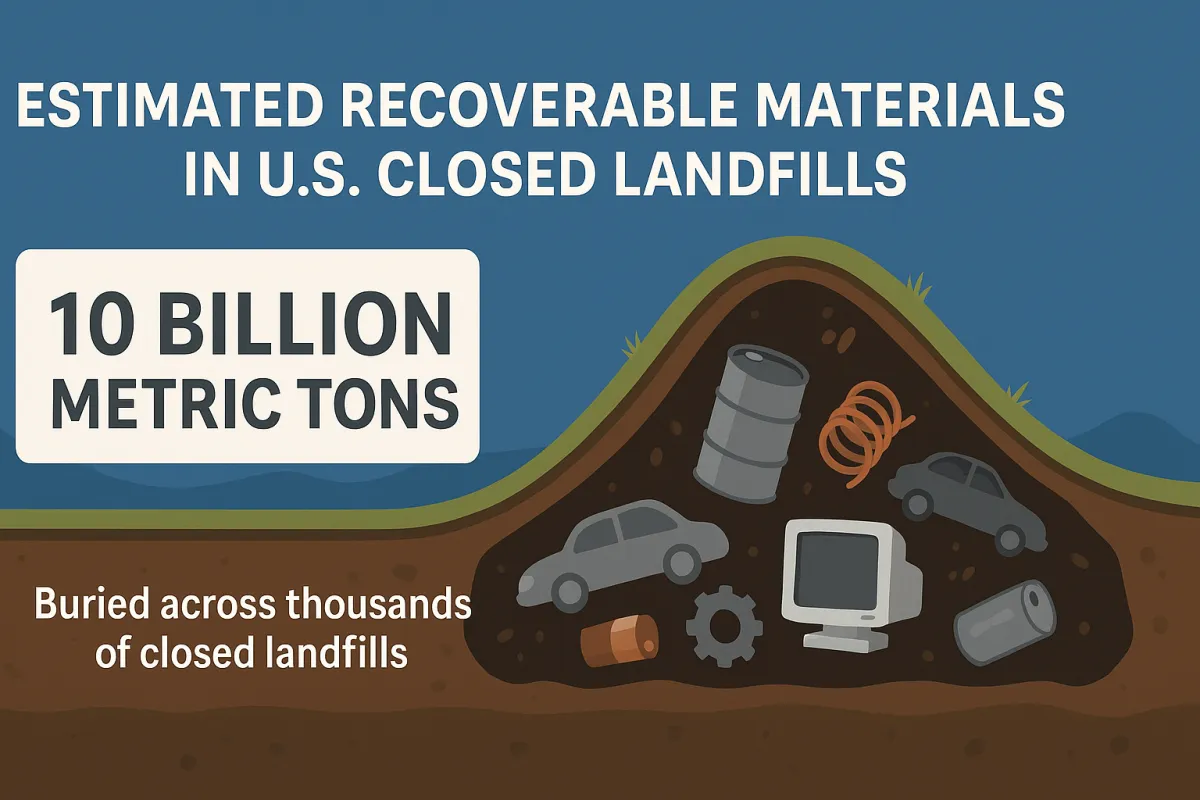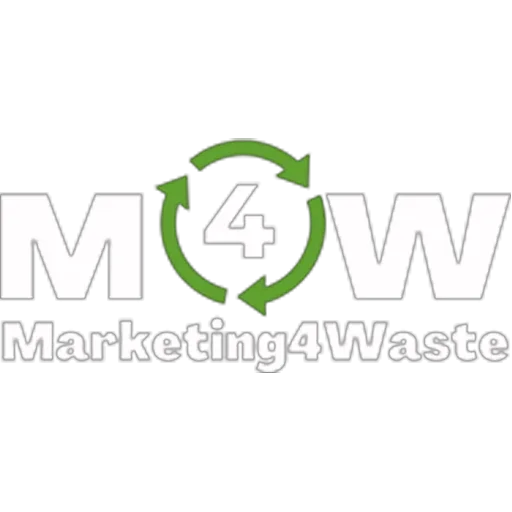Increase the Revenues of Your Waste Company With the Tips Shared in Our Blog Articles

The $10 Trillion Treasure Buried Beneath Our Feet: Why Landfill Mining Is the #1 Strategic Move in a World at War
Here’s a hard truth that no politician, media pundit, or clean-energy preacher wants to tell you:
America isn’t running out of resources. It’s just sitting on them… buried in 10,000 forgotten landfills.
While the White House negotiates new trade restrictions, while China locks down its grip on critical minerals, and while Europe scrambles to secure enough copper, nickel, and rare earths to fuel its fragile industrial base, there’s a hidden fortune rotting just a few miles from every major U.S. city.
Not oil. Not gold. But aluminum, copper, iron, lithium, cobalt, rare earths, and enough high-value metals to flip the entire global trade board in favor of anyone smart enough to claim them.
That, my friend, is landfill mining. And if you’re in the business of commodities, logistics, manufacturing—or you simply understand how war, inflation, and regulation are strangling traditional extraction—then pay attention.
Because I’m going to show you why the next frontier of raw material supremacy starts not in Africa, nor in China, but in your local dump.
Let Me Show You the Battlefield
Let’s get something straight: we’re in the middle of a global economic war, not just a trade disagreement. The headlines are just the noise. What’s really happening?
China controls 90% of rare earth supply.
Russia and Ukraine continue to disrupt nickel and platinum flows.
The Middle East is boiling, threatening energy and transport corridors.
The U.S. is hiking tariffs up to 145% on strategic imports, while allies quietly restrict what they sell to us.
What does this mean for you?
It means every gram of imported copper, lithium, aluminum, or cobalt will come slower, with more strings attached, and at double the price.
It means traditional mining timelines of 7 to 10 years are no longer viable. Not when supply chains are collapsing in real-time.
And it means companies who keep depending on foreign mines will soon find themselves not only outbid, but out of business.
Now Here’s the Punchline
While we were offshoring our production, while bureaucrats were chanting about green transitions and fair trade, something astonishing happened:
America buried over 10 billion metric tons of raw materials.
In landfills.
Yes, the same “waste mountains” that cities paid to close and forget now represent the most accessible, permissioned, and underpriced mineral reserves in the Western Hemisphere.
Think I’m exaggerating?
Let’s break it down.
The Numbers That Should Wake Up Every CEO
According to aggregate studies and EPA data:
Ferrous metals (steel, iron): 26% of recoverable mass – 2.6 billion tons
Non-ferrous metals (aluminum, copper): 8% – 800 million tons
Precious & rare metals: modest in percentage, massive in value – $70+ billion/year market
Let me say it differently:
If just 2% of U.S. closed landfills were mined for metals and rare elements, we could eliminate 50% of import dependency on high-tariff commodities.
This isn’t wishful thinking. It’s logistics, engineering, and commerce meeting geopolitical necessity.
The War Has Changed the Rules
In my consultations with waste management companies and manufacturing heads, I tell them this:
You are no longer in the waste business. You are in the extraction business.
Why?
Because import restrictions are no longer just economic—they’re strategic weapons.
The Inflation Reduction Act now penalizes companies sourcing raw materials from “foreign entities of concern.” That means:
Your EV battery supply chain is now a liability.
Your chip components? One Chinese decree from disappearing.
Your defense contractors? One embargo away from collapse.
But here’s the kicker…
Landfill materials are immune to tariffs.
They’re already inside U.S. borders.
They’re already classified as “post-consumer assets.”
And best of all?
They’re already paid for.
Why Mining Companies Are Late to the Game
Most mining executives I speak with shrug when I say “landfill.”
Too messy. Too unpredictable. Too political.
Let me translate that: they’re too lazy to innovate.
But here’s what they’re missing:
✅ No exploration permits – the site is already known.
✅ No protests or native land conflicts – it’s already zoned.
✅ No million-dollar feasibility studies – the material composition is trackable with 3D radar and AI scanning.
✅ No 10-year development curve – most closed landfills can be reactivated in under 12 months with the right JV.
Let me be blunt: if you’re in mining and not talking to landfill operators, you’re missing the next Klondike.
From Trash to Trade Power: The Model
If you’re reading this and asking: how the hell do I get in?—good question.
Here’s the playbook I use with private equity firms and materials brokers:
Step 1: Target Rich Landfills
Use satellite imaging, state waste databases, and municipal reports to find landfills with:
High post-industrial waste (think: 1980–2005)
Near urban zones (less transport)
Closed for 10+ years (stable chemistry)
Step 2: Secure Access via Licensing or Revenue Share
Don’t buy the land—partner. Offer:
Profit sharing (15–30%)
Job creation for local governments
Long-term site rehabilitation (a politically attractive bonus)
Step 3: Deploy Mobile Material Recovery Units
You don’t need to build a full-scale facility. Use:
AI-powered sorting belts
Eddy current separators
Robotic disassemblers for high-value electronics
CapEx? Around $2–4 million per site. Compared to $300M+ for a new mine, it’s pocket change.
Step 4: Pre-Sell Materials with Offtake Agreements
Lock in buyers before extraction begins:
Domestic smelters
EV manufacturers
Government procurement
Use the “tariff-free” origin status as a pricing advantage.
The Million-Dollar Closing Thought
When people say the American empire is declining, I laugh.
Because the real power has never been in politics, and certainly not in protests.
It’s in who controls the materials.
And right now, while everyone is chasing lithium in Chile, cobalt in Congo, and rare earths in China, the smart money is quietly staking claims to the 20th century’s waste… to fuel the 21st century’s war for materials.
Let others virtue-signal. Let them chase ESG checkboxes.
You? You’re here for profit, power, and permanence.
If that speaks to you, then it’s time we talk.
📅 Book a free 20-minute consultation with me.
Let’s uncover the hidden mine beneath your feet.
👉 https://sambarrili.com/schedule-free-20min-call
Because the future of resource dominance won’t be won in the mines.
It’ll be won in the landfills.
And the first movers will own it all.
To Your Success,
Sam Barrili
The Waste Management Alchemist


© 2026 Marketing4waste - All Rights Reserved,
Marketing4Waste is a brand of MiM MarketingInterimManagers LLC
+1 801 804 5730

